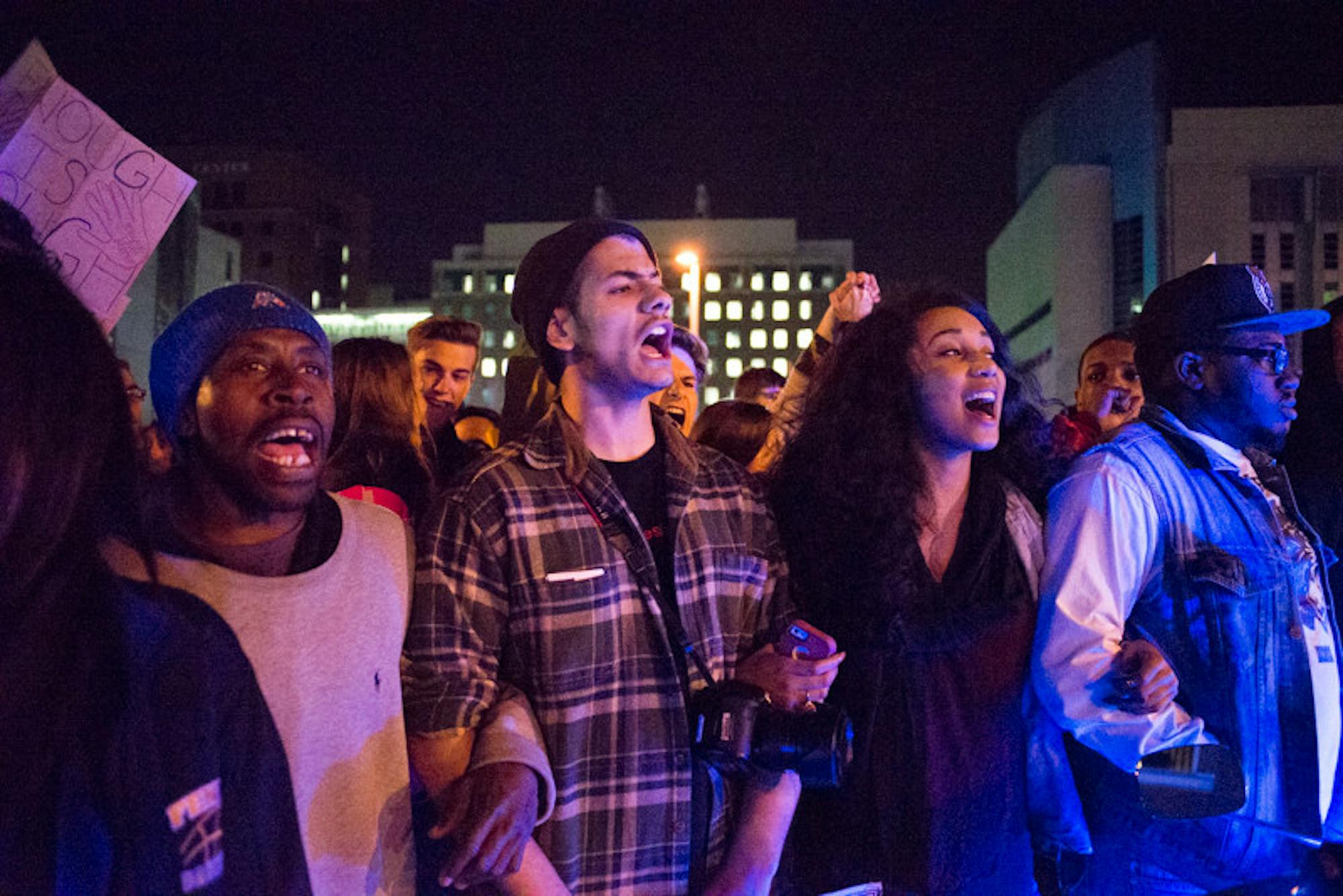The events in Ferguson, Mo. over the past few months have made it clearer than ever that our justice system is failing people of color in this country. The Missouri grand jury’s failure on Monday night to indict white police officer Darren Wilson for his shooting of black unarmed teen Michael Brown, in a flawed and questionable legal process, is only the latest in an entrenched historical tradition of state violence against black people. In response, Boston organizers have called to “Indict America” — or hold our country accountable for the crimes it has perpetrated.
With no justice, there will be no peace. Over the past week, thousands of people have taken to the streets in every major city, in largely peaceful protests that have sometimes ended in violent clashes with the police. Tufts students were among thousands in Boston who expressed outrage on Tuesday night, not just with this single grand jury decision, but with a system of racial oppression and institutionalized white privilege that affects every part of American society, from education to health to cycles of wealth and poverty.
We stand with these students, for not only being aware of what is right, but also acting on it. The Tufts community must not forget, however, that although his death is a tragedy, this is not just about Michael Brown. It is not just about Ferguson, despite the city’s long history of virulent racial tensions. These are not isolated incidents, just as the murder of Tamir Rice, Trayvon Martin, Oscar Grant, Eric Garner and John Crawford III at the hands of white police officers were not isolated incidents. Garner, Crawford and Brown were all killed this summer within 30 days of each other, with no indictments or arrests of any of the implicated officers. Rice, who was 12 years old and holding a BB gun, was killed a day after the verdict on Darren Wilson was announced.
The deaths of these young black men are a direct result of a broader trend of racial profiling and discrimination, which is merely a manifestation of larger systems of institutionalized racism that deem black people as inherently dangerous. According to Eric Guster, a civil rights and criminal defense trial lawyer, in an article for The Root, it is almost impossible to hold police officers accountable in these cases. In most states they have the right to shoot to kill in defense of self or of others, and have many options to defend themselves against any liability, no matter the facts of the situation. What does it mean when police officers, who are supposed to uphold order and justice, are clearly enacting injustice against black people?
As Tufts students, this should be a wake-up call, once and for all, that a “post-racial” American does not exist. Racism is here and it affects all of our lives, from the privilege of white people not to have to fear for their sons’ lives, to the daily aggressions that people of color face. The protesters have spoken out and created spaces that resist these “post-racial” America discourses. While some criticize their tactics, which include shutting down highways, these strategies are methods of calling attention to large injustices within the system. They are no less drastic than the racial oppression they seek to address. The protesters deserve legitimacy because of the urgency of their cause and the difficulty of the task ahead.
We urge Tufts students to join together in the fight for justice and for peace — one cannot exist without the other. This is our moment to express our outrage and pain, to interrogate all our systems of justice, to build unity and solidarity and to move forward.
No justice, no peace






